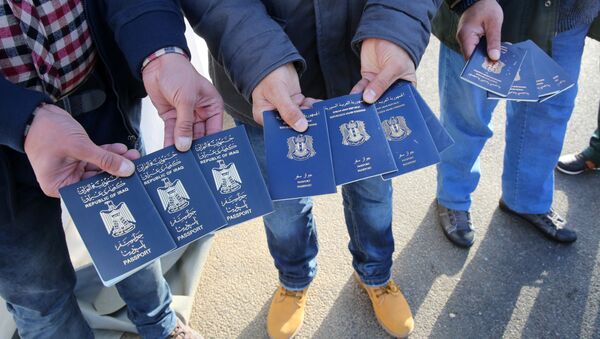Berlin’s criminal police office has instructed its commissariats on how to withhold information from the migration authorities to secure investigations, the local outlet Berliner Zeitung reports, citing a week-old internal letter. The circular is said to be especially cautious if search or arrest warrants are pending.
The city’s criminal police have confirmed to the German newspaper Die Welt that the letter exists but noted that there are no suspicions against individual employees at the moment.
According to the outlet, the police suspect that information about pending preliminary investigations may be reaching suspects from the migration office. Officials, probing forced entries, reportedly received indications that serial criminals had been tipped off about police operations in advance.
The German police issued a nationwide warning about security vulnerabilities in Berlin’s immigration office only in June after blank documents and an approval seal had been stolen over the Easter weekend. Following the break-in, fake residence permits and "washed" passports had been discovered. Apart from the Easter break-in, a similar incident took place in October 2017. According to another German outlet Bild, which first reported about the letter, a total of 20,000 documents were lost.
As the German government revealed in response to a request by lawmaker from the party Alternative for Germany Martin Sichert this August, they have "evidence of illegal trade” in documents, stolen blank forms as well as “findings on pseudo-legalisation”. Such documents can help to trick the German authorities into giving social allowances and child benefits.
In addition, stolen residency permits can be used for “white-washing” documents, as Die Welt points out. The scheme looks like this: a migrant buys a stolen blank residency permit, sticks it to his/her passport, then damages the latter and goes to his/her home country’s embassy to get a new identity document. Then, he or she goes to a German immigration office and applies for the renewal of the residence permit that was supposedly in the old passport. Thus, with the document officially issued by a German authority, the permit is "legitimised", as the police reportedly pointed out.



